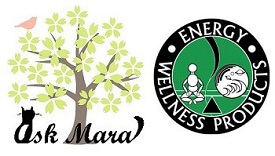 Garlic is widely known as a food flavoring that is closely related to the onion, chive and leek. The pungent herb pairs well with meats, pasta and even salads. For centuries, it has also been a medicinal herb, used to treat and prevent an array of conditions and diseases. The fresh clove is shown to benefit the heart and blood systems, helping people with high blood pressure, coronary heart disease and high cholesterol levels. The following are some additional uses and benefits pertaining to garlic.
Garlic is widely known as a food flavoring that is closely related to the onion, chive and leek. The pungent herb pairs well with meats, pasta and even salads. For centuries, it has also been a medicinal herb, used to treat and prevent an array of conditions and diseases. The fresh clove is shown to benefit the heart and blood systems, helping people with high blood pressure, coronary heart disease and high cholesterol levels. The following are some additional uses and benefits pertaining to garlic.
Garlic Health Benefits and Cancer
Although research is pending regarding the efficacy of garlic for cancer, some people use it to prevent colon cancer, stomach cancer, prostate cancer and breast cancer. The American Cancer Society notes that several compounds in it may have anti-cancer activity. Allyl sulfur is the main compound thought to be the most beneficial, however. Allyl sulfur works by helping rid the body of cancer-causing chemicals, and encouraging these potentially harmful cells to die naturally. Although evidence is still being gathered to confirm garlic’s role in the fight against cancer, consuming moderate amounts may very well be a reasonable and even advantageous approach to health.
Stomach
Some people find garlic useful for reducing abdominal discomfort. As a prebiotic, or a healthy type of bacteria, it promotes the growth of microflora in your large intestine. In conjunction with probiotics, it works to improve digestion. Some people use probiotics to treat diarrhea and irritable bowel syndrome, a condition that also causes stomach cramping and bloating.
Immunity
Proponents of garlic believe the herb contains immune-boosting properties, and therefore helps stave off illnesses such as the common cold and flu. Aged garlic is especially powerful due to its high level of antioxidants, which protect the body from cell damage.
Other Uses for Garlic
Whether you slice it, dice it or mince it, enjoy the flavor of garlic and consider using it to fight fungal infections, regulate high blood sugar levels, cure the common cold or stave off a sinus infection. If you do not care for the taste, try using herbal preparations such as tablets or capsules. The benefits of this bulbous herb are boundless.
Cautions
Because garlic may interfere with the some medications, it is best to consult a medical professional before using it as an herbal medicine. In addition, it may have a blood-thinning effect, which can cause some problems for people with certain health conditions.
References: http://www.nlm.nih.gov/medlineplus/druginfo/natural/300.html http://www.cancer.org/Treatment/TreatmentsandSideEffects/ComplementaryandAlternativeMedicine/dietandnutrition/garlic?sitearea=ETO
